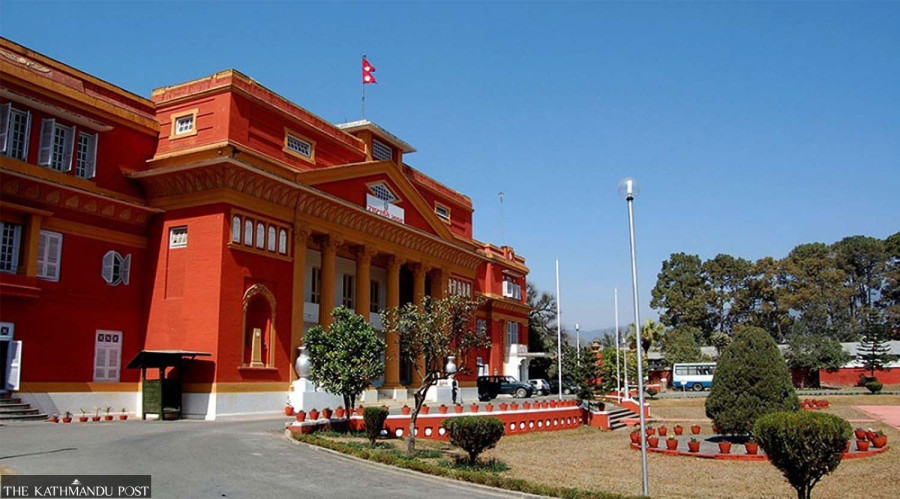Editorial
Do it right
How much homework has the Maoist party or the JSPN done on the suitability of a directly elected presidential system for Nepal?
It’s been just seven years since the country adopted a federal constitution, but several of its main architects already want to change some integral components. The CPN (Maoist Centre), the second biggest partner in the ruling coalition, has pitched for a directly elected president in its election manifesto, as has the Janata Samajbadi Party Nepal (JSPN), the biggest Madheshi outfit. The two parties are also batting for a fully proportional electoral system. A few others like the Rastriya Prajatantra Party would like to see a directly elected prime minister and a ceremonial monarch, as well as a fully proportional legislature. The country's two biggest political forces, the Nepali Congress and the CPN-UML, want to retain the current arrangements.
There is nothing wrong with the parties' wanting to change a governing system they think is unsuited for the country. In fact, if their views have public support, it is their duty to address them. But the problem is lack of homework. For instance, how much homework has the Maoist party or the JSPN done on the suitability of a directly elected presidential system? And how will they remove the shortcomings of the proportional representation system that have undermined public faith in the current mixed electoral system? These political parties should first initiate widespread debates, both within and without, before including such proposals in their manifestos. Yet in the past five years since the last elections, there have been very few—if any—such debates.
Healthy public debates are the bedrock of democracy. The goal of such debates on vital issues is to get broad feedback so that the people's wishes are adequately incorporated. But our political parties, big and small, spend most of their time between elections trying to make and unmake governments, and in internal jockeying for power. This adds to the public scepticism that these election-time agendas are no more than vote-getting gimmicks. The country cannot be made a laboratory for endless experimentation. When you decide on a system, it has to be given time to mature and take root. Fundamentally, there is nothing wrong with the current government structure or electoral system. The problem has rather been lack of resolve among those tasked with implementing it.
The big parties’ failure to time and again honour their commitments has jaded the people, and thus many are now in a mood to cast their ballots for someone new, for instance, independents or one of the newer parties. They are doing so because they feel unvalued by the traditional parties which seem to think of them as no more than vote banks to be appeased with various nice-sounding election-time slogans. But today’s electorate, more educated and informed than ever before, is discerning. They will have to be persuaded with reason. Election manifestos represent the political parties’ larger vision for the country and society. There should thus be a very high bar for what gets into them.




 8.43°C Kathmandu
8.43°C Kathmandu














